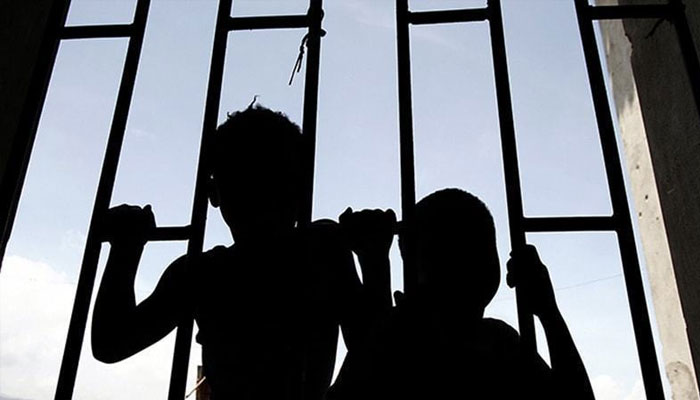Endemic abuse
Day aims to affirm need to eliminate child sexual exploitation, abuse and violence
Monday (November 11), marked the third annual World Day for the Prevention of and Healing from Child Sexual Exploitation, Abuse and Violence. The day aims to affirm the need to eliminate and prevent all forms of child sexual exploitation, abuse and violence and to promote the dignity and rights, including mental and physical health and healing, of those who experience child sexual exploitation, abuse and violence. Despite growing efforts to counter the problem of child sexual exploitation, abuse and violence, with the dignity of children and their right to live free from violence is placed as a priority in the 2030 Agenda for Sustainable Development, the problem remains endemic across the globe. The WHO estimates that 20 per cent of all girls and one in every seven boys experience some form of sexual abuse in their lifetime. When it comes to Pakistan, data from the child protection NGO Sahil shows that a total of 1,630 cases of child abuse were reported from across the country in just the first six months of 2024. Of these cases, 862 involved child sexual abuse, 668 were cases of abduction, 82 were cases of missing children and 18 cases of child marriages were also reported. Another Sahil report claims that at least 11 children were abused every day in 2023. As such, the problem of child sexual abuse and violence against children in Pakistan shows no signs of getting better.
It is also worth noting that the data on this issue likely underestimates the true extent of the problem since many, if not most, cases of child sexual exploitation, abuse and violence go unreported. Aside from gaps in the legal system, there is also the problem of child abuse simply not being seen as a problem by many and the unhelpful stigma that is still attached to survivors of child sexual abuse. This problem is also tied up with the country’s unequal socioeconomic dynamics, meaning the children experiencing the violence and/or abuse and exploitation often come from underprivileged backgrounds, with their tormentors often being their employers and others with power over them. This means victims often lack the financial means and/or awareness to pursue cases and can also be pressured to stay silent, many may also choose not to say anything for fear of losing their only means to put food on the table. And yes, that seemingly adult problem is a real concern for many children in Pakistan. The wall of silence only gets higher when abuse is perpetrated by a family member. It is thus unsurprising that the most prominent cases of abuse and violence against children only come to light once the victim has either died or been hospitalised due to the abuse.
As a result, while the authorities have made efforts to strengthen child protection systems and enhance its legal framework to safeguard children, a comprehensive overhaul of Pakistani society is needed to achieve meaningful progress. So long as this remains a country where millions of children are forced to work in unsafe environments to survive, come from families that are too poor to access the legal system or file cases, and perpetrators who feel like they can get away with anything because of their wealth and/or social status, this problem will remain endemic.
-
 Iran Tensions Rise As Trump Says He Is 'not Thrilled' With Nuclear Negotiations
Iran Tensions Rise As Trump Says He Is 'not Thrilled' With Nuclear Negotiations -
 Where Is Calvin Klein's Wife Kelly Klein Now After Divorce And Fashion Fame?
Where Is Calvin Klein's Wife Kelly Klein Now After Divorce And Fashion Fame? -
 Kourtney Kardashian’s Role As Stepmother Questioned
Kourtney Kardashian’s Role As Stepmother Questioned -
 Neil Sedaka Dies At 86 After Hospitalisation In Los Angeles
Neil Sedaka Dies At 86 After Hospitalisation In Los Angeles -
 'Lizzie McGuire' Star Robert Carradine's Reason Of Death Laid Bare
'Lizzie McGuire' Star Robert Carradine's Reason Of Death Laid Bare -
 Lisa Rinna Breaks Silence After Recent Reunion With Andy Cohen: 'I've Pissed Him Off'
Lisa Rinna Breaks Silence After Recent Reunion With Andy Cohen: 'I've Pissed Him Off' -
 Savannah Guthrie Mom Update: Unexpected Visitors Spark Mystery Outside Nancy's Home
Savannah Guthrie Mom Update: Unexpected Visitors Spark Mystery Outside Nancy's Home -
 Elle Fanning Shares Detail About Upcoming Oscars Night Plan With Surprise Date
Elle Fanning Shares Detail About Upcoming Oscars Night Plan With Surprise Date -
 Demi Lovato Spills Go-to Trick To Beat Social Anxiety At Parties
Demi Lovato Spills Go-to Trick To Beat Social Anxiety At Parties -
 Benny Blanco Looks Back At The Time Selena Gomez Lost Her Handrwritten Vows Days Before Wedding
Benny Blanco Looks Back At The Time Selena Gomez Lost Her Handrwritten Vows Days Before Wedding -
 Naomi Watts Reveals Why She Won't Get A Facelift In Her 50s
Naomi Watts Reveals Why She Won't Get A Facelift In Her 50s -
 Travis Kelce's Mom Donna Fires Back At Critic With Sarcastic Reply After Body Jab
Travis Kelce's Mom Donna Fires Back At Critic With Sarcastic Reply After Body Jab -
 Kendall Jenner Gets Candid About Her Differences With The Kardashian Clan Over Style Choices
Kendall Jenner Gets Candid About Her Differences With The Kardashian Clan Over Style Choices -
 Sam Altman Opens Up About OpenAI, Anthropic, Pentagon Conflict
Sam Altman Opens Up About OpenAI, Anthropic, Pentagon Conflict -
 Brenda Song Confesses Fascination With Conspiracy Theories
Brenda Song Confesses Fascination With Conspiracy Theories -
 Lunar Eclipse 2026: Time, Date, Sighting Locations, Know Every Detail
Lunar Eclipse 2026: Time, Date, Sighting Locations, Know Every Detail




